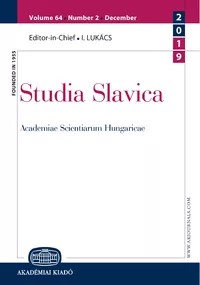Paradoksy pamiętania. O wybranych zagadnieniach postpamięci w wierszach Piotra Macierzyńskiego
Paradoxes of Remembering: About Some Crucial Issues in Piotr Macierzyński’s Holocaust Poetry
Author(s): Ilka Papp-ZakorSubject(s): Polish Literature
Published by: Akadémiai Kiadó
Keywords: Post-memory; narrativity; cultural studies; self-perceptions; trauma; time; paradox; politics of memory;
Summary/Abstract: Post-memory literature is a mostly narrative genre focusing on the trauma of Holocaust from the perspective of the 2nd, 3rd, and even 4th generation after the war. It is usually based on historical documents (both written and visual, e.g. photos and drawings) and family histories. Therefore, it typically reflects on its relationship with literary and cultural tradition (or, more exactly: on how the experience of Holocaust is embedded in culture, how it is remembered, interpreted, and used) but it also addresses and questions the politics of memory and the practices of remembering. Often it is a highly personal genre, in which the roles of the author and that of the narrator / subject of the poetry tend to overlap. Post-memory literature is also rich in essayistic traits, reflecting both on its tools and possibilities and on its raison d’être (or the lack thereof). Its authors, however, seem to believe, in agreement with Imre Kertész, that after Auschwitz it is impossible to not write about Auschwitz.
Journal: Studia Slavica Academiae Scientiarum Hungaricae
- Issue Year: 67/2022
- Issue No: 1-2
- Page Range: 213-223
- Page Count: 11
- Language: Polish

